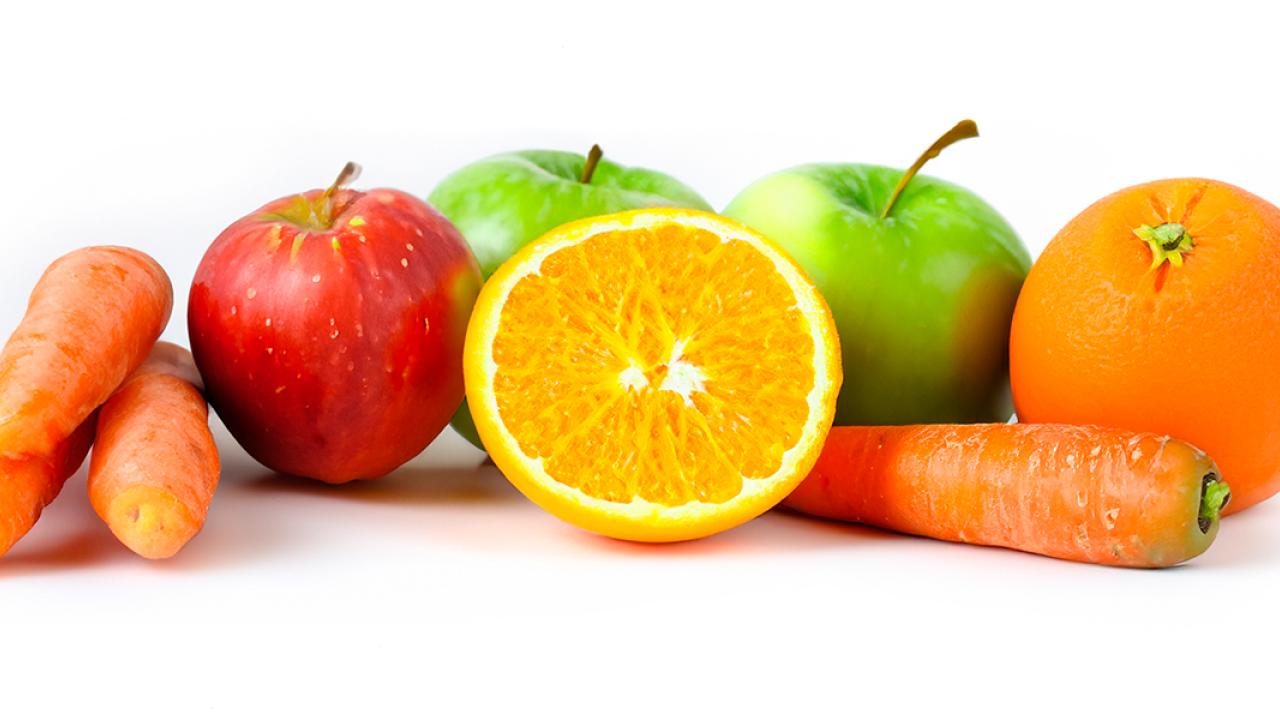
Foods that Fight Cancer
Pilot project studies whether educational outreach at food pantries can spread the word about foods that reduce cancer risk
Food banks and food pantries are often the last line of defense against food insecurity. According to the U.S. Department of Agriculture, nearly 13% of Americans faced food insecurity at some point in 2022. Hunger isn’t the only issue. Food must be nutritious to be beneficial. Lack of nutrients can lead to numerous chronic illnesses including cancer.
About one in three people will be diagnosed with cancer in their lifetime, but people living in underserved communities face an even higher cancer burden. Access to healthy food in these areas is often limited and, when it is available, is expensive or unappealing.
“Regularly eating a variety of fruits, vegetables, whole grains, beans, and other plant-based foods can lower the risk of cancer,” said Cassandra J. Nguyen, assistant professor in the UC Davis Department of Nutrition. “We need to spread the word about foods that fight cancer, especially with people facing a higher cancer risk, so they know that what you eat can impact your chances of getting cancer.”
Nguyen is co-leading a new pilot study with UC Davis nutrition researcher Gerardo Mackenzie. They are evaluating the best way to provide nutrition education to clients who use charitable food banks. The one-year project is being funded by a UC Davis Comprehensive Cancer Center grant and is conducted in partnership with the Sacramento Food Bank and Family Services.
“Good nutrition is so important because we estimate that 30% to 40% of cancers may be preventable with a better diet,” Mackenzie said. “This study is a small step that could lead to a bigger study that can help us further understand the impact food has on cancer risk.”
Educational materials in several languages have been developed and distributed to clients at the food bank in the hope of gaining valuable insights on the best way to encourage healthy eating.
“The objective of the pilot project is to develop intervention materials based on the American Institute for Cancer Research’s 26 Foods that Fight Cancer program. We also want to evaluate the effectiveness of materials designed to engage clients and educate them about foods that lower cancer risks,” said Nguyen.
Key Foods that Fight Cancer™
APPLES
Linked with lower levels of some breast cancers and may decrease lung, bladder, and digestive tract cancers.
What’s in apples:
- Dietary fiber
- Antioxidants
- Immunity boosters
BEANS, PEAS, LENTILS
Known as pulses, the edible seed from a legume plant. May decrease colorectal cancer and obesity.
What’s in pulses:
- Dietary fiber
- Antioxidants
- Folate for healthy cell growth
ORANGES
May decrease lung, bladder, and digestive tract cancers, including disease in the colorectal tract and the upper part of the stomach.
What’s in oranges:
- Dietary fiber
- Antioxidants like vitamin C
- Anti-inflammatory compounds
CARROTS
May decrease types of breast, lung, bladder, and digestive tract cancers.
What’s in carrots:
- Antioxidants like vitamin A
- Anti-diabetic, obesity, and inflammatory compounds
